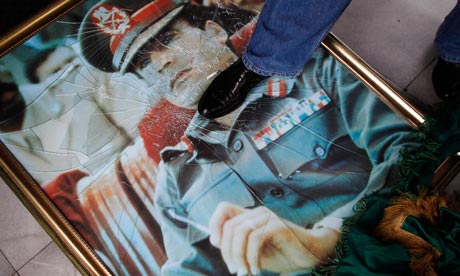By Terance Walsh
Impunity Watch Reporter, Europe
JERUSALEM, Israel – A district court in Jerusalem on Monday ruled that Aleksandar Cvetkovic, a Bosnian Serb, should be extradited and tried in a Bosnian court for war crimes he committed in one of the worst massacres of the former Yugoslav republic’s 1992-1995 war.

Cvetkovic was part of an eight-man firing squad that killed approximately 1,000 Muslim Bosnians at Branjevo farm in July 1995. Evidence in the extradition reports indicates that Cvetkovic made use of an M-84 machine-gun to speed up the killings. The 42-year-old Cvetkovic has denied the charges against him, maintaining that he was a driver for the Bosnian Serb forces but did not participate in the massacre.
The killings were part of the Srebrenica massacre, what news sources call the “worst atrocity on European soil since World War II,” which was led by Gen. Ratko Mladic and left over 8,000 Muslim men and boys dead.
In 2006, Cvetkovic immigrated to Israel. He obtained Israeli citizenship through his Jewish wife and resided in Carmiel prior to his arrest. If he is convicted, he will not be allowed to serve his prison sentence in Israel because the crimes of which he is accused pre-date his immigration.
The extradition process began in January this year. Israeli authorities arrested and arraigned Cvetkovic and held him in police custody because of “the enormity of the danger posed to the public.”
Judge Amnon Cohen decided to extradite Cvetkovic and imposed several conditions on the government of Bosnia and Herzegovina, including holding Cvetkovic in a separate, secure detention wing during his arrest, and maintaining his security if he is convicted and sentenced to a prison term.
Furthermore, the Bosnian government must allow Cvetkovic regular visits by consular representatives of the Israeli embassy in Bosnia and Herzegovina. If Cvetkovic is convicted, the Bosnian court must impose a sentence in accordance with that prescribed by the European Court of Human Rights.
The UN war crimes tribunal in The Hague has sentenced fourteen Bosnian Serbs in connection with the Srebrenica massacre. A Bosnian war crimes court that was set up in 2005 to assist The Hague has jailed twelve and acquitted seven who were alleged to have participated in the Srebrenica massacre.
Cvetkovic will have thirty days to appeal the Israeli Supreme Court’s decision to extradite him. Israeli officials said that the extradition appeals process might take two years.
For more information, please see:
Al Jazeera – Israel to Extradite Citizen Over Srebrenica – 1 August 2011
European Jewish Press – Israel to Extradite Serb Accused of Srebrenica Role – 1 August 2011
Jerusalem Post – Court Rules to Extradite Bosnia Massacre Suspect – 1 August 2011
Haaretz – Israeli Man Arrested for Alleged Involvement in Bosnia Genocide – 18 January 2011


